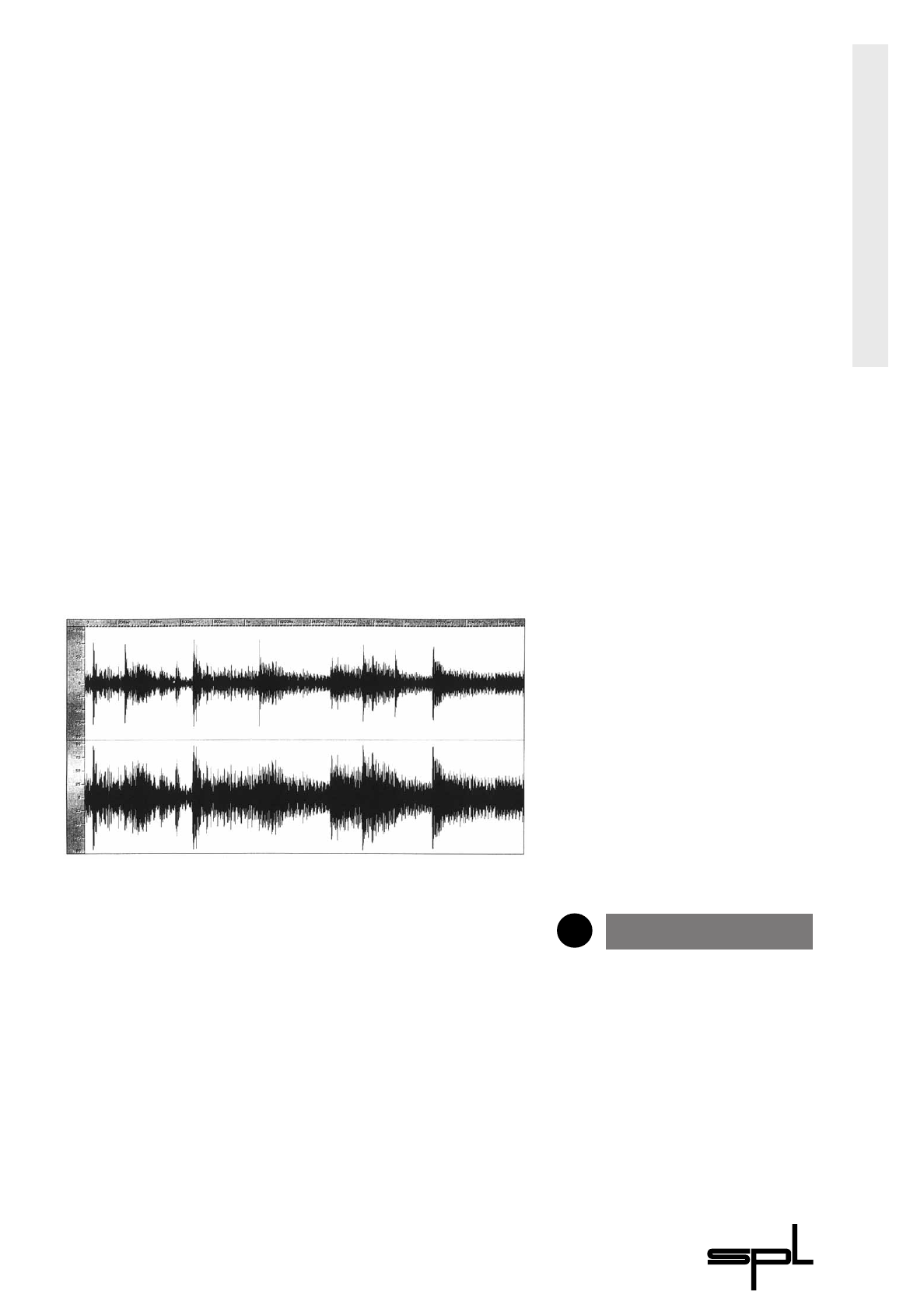
9
Machine Head
Practical values for the DRIVE
are 3 to 8.
The paragraph besides offers
some information on internal
signal level management.
Above: original signal
Below: processed signal
showing increased loudness
Both signals are normalized
to 0dBFs.
Adjusting the high frequency
damping effects
The higher the DRIVE the more intense gets the saturation of
the tape. While increasing the D
RIVE value the output level may
increase, too. Compensate for this by reducing the O
UTPUT GAIN
value (see 5) and monitor the OUTPUT LEVEL meters. The subjec-
tively the perceived loudness will increase more dramatic than
the actual PPM value!
Recommended values are 3 to 8 for the D
RIVE-parameter
which corresponds with +10dB to +15dB for the actual D
RIVE
LEVEL shown in the LED meter bar.
When booting the M
ACHINE HEAD the default value of the
D
RIVE parameter will be 0 in the LC-display. If you have “the
perfect pitch” you can already hear slight saturation effects. To
keep the handling of the M
ACHINE HEAD as simple as possible, it
is necessary to provide a 1:1 level when activating the process
for instant comparison between unprocessed and processed
signal. Internally the M
ACHINE HEAD has to create a headroom –
especially when processing full scale material – to compute the
tape saturation algorithm. With a D
RIVE set to ‘true 0’ you will
loose 7dB headroom. As a starting position the D
RIVE is there-
fore set to 0 which is equivalent to +7dB of recording level.
Therefore you also have negative values for the D
RIVE para-
meter. A ‘true’ 1:1 input/output setting is achieved by setting
the D
RIVE to -7dB and the INPUTGAIN to +7dB.
The corresponding level is displayed in D
RIVE LEVEL PPM
meters (see 8).
The HF-A
DJUST control allows you to control the amount of
high frequency damping or boosting. The control range is -6
(max. damping) to +6 (max boost).
The higher you saturate a real tape the more high frequency
damping takes place. With the M
ACHINE HEAD you can set the
amount of damping independent of the D
RIVE LEVEL. You can
either use a strong damping effect with low saturation or the
other way around. This freedom is not offered by a real tape
machine.
On the other hand you can boost the high frequencies which
simulates overemphasized harmonics e. g. due to improper
calibration of the tape machine or differences in tape quality.
Control Elements
HF-Adjust
4


















